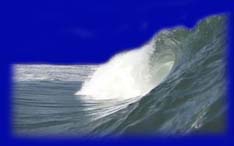|

Saint
Patrick
His given name was Maewyn, was born at Kilpatrick, Scotland, in the year 387; died at Saul, Downpatrick, Ireland, 17
March, 493. His dad was Calphurnius from a Roman family of high rank and held office of decurio in Britain. His mom Conchessa was
a near relative of the great patron of Gaul, St. Martin of Tours.
When Patrick was 16 years old he was carried off into slavery by Irish marauders and was sold as a slave to a chieftan
named Milchu in Dalriada, Ireland, where for six years he tended his master's flocks in the valley of the Braid and on the slopes
of Slemish, near the modern town of Ballymena.
He told in his "Confessio" that during his 6 years in captivity while tending the flocks he prayed many
times in the day: "the love of God", he added, "and His fear increased in me more and more, and the faith grew in me,
and the spirit was roused, so that, in a single day, I have said as many as a hundred prayers, and in the night nearly the same,
because the spirit was then fervent within me. "
While in slavery he studied under master Milchu (Druid high priest) named St. Germain for 12 years. During his training
he became aware that his calling was to convert the pagans in Ireland to Christianity. Because of a dream of an angel he fled from his
cruel master about 200 miles. He went by ship to Britain, but now his heart was set on devoting himself to the service of God in the sacred ministry.
He adopted the Christian name Patrick, and was appointed as second bishop to Ireland.
Patrick was quite successful at winning converts. And this fact upset the Celtic Druids. Patrick was arrested several
times, but escaped each time. He traveled throughout Ireland, establishing monasteries across the country. He also set up schools and churches
which would aid him in his conversion of the Irish country to Christianity. His mission in Ireland lasted for thirty years. After that time, Patrick retired to County Down. When Patrick was
dying on this day circa 465, he urged his friends not to lament, but rather to celebrate comfortably his exit into everlasting life.
He died on March 17 AD 461. (now St. Patrick's Day).
Irish folklore about St. Patrick's Day:
THE SERPENTS He miraculously drove snakes from the island of Ireland by banging a drum, while giving a sermon from a hilltop.
THE SHAMROCK The pagan Irish had great difficulty understanding the doctrine of the Trinity, until he gave them a natural example
by holding up a three-leafed shamrock to show the three leaves combined to make a single plant. This represents how the Father, the Son,
and the Holy Spirit could all exist as separate elements of the same entity.
The Irish understood at once, and the shamrock became the symbol of the land. Irishmen wear it in their
hats on the saint's day.
Irish heritage has had a profound influence on the USA: 9 people who signed the "Declaration of Independence"
were Irish, and nineteen Presidents of the U.S. were Irish including our first President, George Washington.
Sources:
- "St. Patrick's Day Web Page" © 1999 Jerry Wilson,
- "The Definitive St. Patrick's Day Festivity Book. © 1997,
- Catholic Encyclopedia, © 1913 Encyclopedia Press Inc. Electronic
Version © 1997 New Advent, Inc.
|


